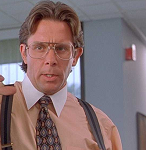|
Oh, the worst of it won't come for hundreds of years, at least.
|
|
|
|

|
| # ? May 14, 2024 05:17 |
|
Mozi posted:Oh, the worst of it won't come for hundreds of years, at least. And with what kind of authority are you saying that? Even if it is "technically worse" hundreds of years from now, doesn't mean it won't be pretty super hosed up in 50-75 years.
|
|
|
|
BattleMoose posted:And with what kind of authority are you saying that? Even if it is "technically worse" hundreds of years from now, doesn't mean it won't be pretty super hosed up in 50-75 years. Uh, someone saying that the effects of unchecked climate change get considerably worse in the 100+ year timespan doesn't negate that things can be bad now, soon or any time in between. That's the kind of problem climte change is, it doesn't get to some horrible level and stay there, it keeps getting worse the longer we exaggerated the imbalance. Then when we finally stop doing that, the effects will still take decades and beyond to work out.
|
|
|
|
Trabisnikof posted:From a policy perspective is there any difference between someone denying Climate Change and someone who is saying all is lost? They both are effectively saying our resources should be spent elsewhere. Yes, absolutely. You can move ill-placed population centers before they move themselves with huge amounts of suffering. You can start storing knowledge in long term capsules so that 1000 years later if everything recovers people can get back to higher standards of living quicker. Artificially conserve species as their habitat disappears. Hell, I'm sure there's a whole lot you can do even if you can't stop the change. Also lol on the "only" 14.5 impact factor comment.
|
|
|
|
There's only one answer to the question "What is to be done?" The solution is two simple words, and it isn't anything as elaborate as the total destruction of an economic system. End Coal. Ending coal is a tangible thing. It's an accomplishable thing. Coal is dirty, very dirty. In addition to its GHG emissions, coal power plants emit more radiation than do nuclear plants. The three highest emitting coal power plants in the United States emit more GHGs in a year than the entirety of the Canadian oil sands. (In fact, the GHG emissions resulting from mining American coal are roughly equivalent to the oil sands). The United States alone has 572 coal plants. There are thousands worldwide. The tide is turning on coal. In 2007 in the United States, there were 154 planned coal plants on the books. By 2012, 142 of those proposed plans had been abandoned. Both Canada and the United States have developed regulations restricting emissions from coal, but this is not enough. "Clean" coal is anything but. Fighting coal is something you can be proud of. You don't need to have an uncomfortable conversation with friends and family where you explain to them how every action they take, every purchase they make is slowly dooming the planet. Instead, enlist them in the fight to end coal.
|
|
|
|
TildeATH posted:Anyone else getting sick and tired of the bipolar naiveté? One minute people are talking about how human beings are going to be vaporized when the climate changes to bees and the next minute we "only have to build twenty thousand desalination plants in India" or "full communism now". It's just this kind of childishness that lead us here. The unwillingness for adults to deal with a situation in a rational manner, and instead let it devolve into slogans and magical thinking. It really makes me hate you people. You sort of deserve all this poo poo. There's honestly nothing left to discuss. Virtually everyone agrees that yes climate change exists and yes it's a big deal and yes severe changes have to happen in order to at least attempt to live with climate change. Everything beyond that is either Arkane trolling or some variety of "what if a meteor hit the Himalayas, then we'd be doubly hosed!" fear mongering. It really should be locked.
|
|
|
|
Well, it seems that news reports are frequently coming out that are changing the timeframe on things. I, for one, have been especially startled by the recent discussion of methane leaks. Maybe there's nothing left to discuss, but maybe someone could give me an estimate on how long I have to live. I've been having a bit of an existential crisis the last couple of days. It's hard to care about my job or future plans.
|
|
|
|
Tenacious J posted:Well, it seems that news reports are frequently coming out that are changing the timeframe on things. I, for one, have been especially startled by the recent discussion of methane leaks. Maybe there's nothing left to discuss, but maybe someone could give me an estimate on how long I have to live. I've been having a bit of an existential crisis the last couple of days. It's hard to care about my job or future plans. If you're in a developed nation it's highly unlikely your lifespan will be shortened due to climate change.
|
|
|
|
computer parts posted:There's honestly nothing left to discuss. Virtually everyone agrees that yes climate change exists and yes it's a big deal and yes severe changes have to happen in order to at least attempt to live with climate change. So for example: Fluffy Chainsaw posted:There's only one answer to the question "What is to be done?" The solution is two simple words, and it isn't anything as elaborate as the total destruction of an economic system. I think every community has something they can work on. These are the kinds of questions I think also are productive: Hand Knit posted:Hi, I've come to this thread after being spooked by an article that's making the rounds on twitter. Ultimately, though, I can only provide a short list of suggestions. There's tons of activist groups out there doing great work that I've never heard of, but I think a thread dedicated to pooling collective knowledge, tactics, and talking about what's going on in their communities, cities, and states would be a more interesting and useful thread to read.
|
|
|
|
computer parts posted:There's honestly nothing left to discuss. Virtually everyone agrees that yes climate change exists and yes it's a big deal and yes severe changes have to happen in order to at least attempt to live with climate change. When a conversation is difficult or a problem intractable, that can be a sign of its importance.
|
|
|
|
Uranium Phoenix posted:This advice is applicable to areas all across the US. Anywhere there's a coal plant, try to close it down and replace it--not just with clean energy, but with good jobs as well so that it doesn't even threaten the livelihood of the workers at the plant or the miners. Anywhere coal is shipped, try to get it banned. In Washington, there were several coal export terminals proposed in different places across the state, and in each case local community action defeated the terminals. Up in Bellingham, it was a chance for environmentalists and labor to get together and talk, and for activists to support the Lummi Nation, who ultimately defeated the last terminal by invoking their treaty rights. Well, yes. Even I as a pessimist will have to admit that abolishing coal as a singular, clear goal is absolutely huge and the most significant first step towards combatting climate change there is. Seriously. There is no single thing that would have a bigger impact than that. Of course, it's also incredibly hard to accomplish, possibly not in the US but in most of the third world they are absolutely dependant on coal power (looking at you, China). There are some strong forces at work against coal these days, which is mostly thanks to climate change awareness, but it's not going to go quietly and not without a fight. Not anywhere. I agree that it's a very good concrete goal for people to focus on, though. Abolishing coal would buy us a lot of time.
|
|
|
|
Does anyone have any good links about the (non)viability of Cap and Trade? I have vague recollections about it being an overly-fancy non-solution, but don't know any details.
|
|
|
|
Uranium Phoenix posted:This is the tricky part, because it can often be really hard to find activist organizations. I personally ended up joining Socialist Alternative, oh no, u dun goofed joining that trotskyite party, shoulda joined the PSL.
|
|
|
|
Nice piece of fish posted:Well, yes. Even I as a pessimist will have to admit that abolishing coal as a singular, clear goal is absolutely huge and the most significant first step towards combatting climate change there is. Seriously. There is no single thing that would have a bigger impact than that. I'm glad you agree! Coal is actually suffering mightly at the hands of inexpensive natural gas, which is relatively much cleaner. When fighting to end coal, it's important to not let the perfect be the enemy of the good. Natural gas, for example, isn't as low emission as a wind farm or a nuclear power plant, but it is much better for the planet than is coal. One of the problems we face in the fight to end coal is that many people focus on it as one of a number of climate-related goals. Germany, for example, was headed in the right direction with its environmental plan, until anti-nuclear environmentalists and the Fukushima disaster convinced policymakers that nuclear power was too dangerous. Now, using lignite, the dirtiest type of coal, it's reactivating coal plants and shuttering its nuclear portfolio. Germany's emissions have actually increased due as a consequence. Environmentalists, in their quest to slay the nuclear beast, actually wound up putting our planet in a worse position than it had been before they intervened. This little anecdote is why ending coal needs to be a singular goal. Working at cross-purposes leads to poorer environmental outcomes for everyone.
|
|
|
|
While talking about coal there is another very important thing literally everybody can do. Consume less. Seriously. Don't be so quick to throw things out. Find other uses for stuff you'd throw out. Don't buy a new closet of clothes every year. Don't drive a gigantic SUV. Don't live alone in a big house. Try to shorten your commute. Eat less beef. This will also be tied to economic, social, and political change as consumerism is really the base of our economy. We can't grow exponentially forever but we try to consume as much as possible at all times. It might seem small but everything you buy had to be made, which probably involved a factory.
|
|
|
|
ToxicSlurpee posted:While talking about coal there is another very important thing literally everybody can do. This is wrong, and is a great example of what I mean by working at cross purposes. The emissions tied to your individual life are statistically insignificant compared to the emissions of a coal plant. You could abandon material possessions and spend the rest of your life trying to convince people to consume less and you will have a smaller impact on emissions that you would have by helping to close a single coal plant a year earlier than it otherwise would have. If you want to reduce emissions, dedicate your time to helping end coal. Nothing else you can do is of any consequence.
|
|
|
|
As an attempt to inject some good news, China's coal emissions may have peaked earlier than planned.quote:China is the world’s biggest polluter and more than tripled its coal burning from 2000 to 2013, emitting billions of tonnes of climate-warming carbon dioxide. But its coal consumption peaked in 2014, much earlier than expected, and then began falling. One never can be sure with data from China but it would certainly be nice to have something positive happening.
|
|
|
|
Fluffy Chainsaw posted:This is wrong, and is a great example of what I mean by working at cross purposes. The emissions tied to your individual life are statistically insignificant compared to the emissions of a coal plant. You could abandon material possessions and spend the rest of your life trying to convince people to consume less and you will have a smaller impact on emissions that you would have by helping to close a single coal plant a year earlier than it otherwise would have. You're wrong for two critical reasons. Fighting coal and reducing one's own emission footprint are not mutual exclusive by any means. Second and as important, individuals drive society. This effect is felt on many levels. Most basic is the way individual's actions can be aggregated. The meaningful amount of rooftop solar comes from a bunch of piddly installs. The second order is the way individuals effect those around us. When people see individuals acting as examples they're more likely to follow. The third order impacts are how communities and organizations respond to vanguard individuals. City composting programs were led by a bunch of individuals doing at home composting first and businesses use early adopters of high effiency equipment to push those features into the mainstream. One has to recognize that like many systemic issues, individual action won't fix anything and isn't enough, but it is still a powerful force that we all can activate, regardless of place, person or privilege.
|
|
|
|
Trabisnikof posted:One has to recognize that like many systemic issues, individual action won't fix anything and isn't enough, but it is still a powerful force that we all can activate, regardless of place, person or privilege. Ahahahahahahahahahahahahahahahahahahahahahahahahahahahahahahahahahahahahahahahahahahahahahahahahahahahahahahahahahahahahahahahahahahahahahahahahahahahahahahahahahahahahahahahahahahahahahahahahahahahahahahahahahahahahahahahahahahahahahahahahahahahahahahahahahahahahahahahahahahahahahahahahahahahahahahahahahahahahahahahahahahahahahahahahahahahahahahahahahahahahahahahahahahahahahahahahahahahahahahahahahahahahahahahahahahahahahahahahahahahahahahahahahahahahahahahahahahahahahahahahahahahahahahahahahahahahahahahahahahahahahahahahahahahahahahahahahahahahahahahahahahahahahahahahahahahahahahahahahahahahahahahahahahahahahahahahahahahahahahahahahahahahahahahahahahahahahahahahahahahahahahahahahahahahahahahahahahahahahahahahahahahahahahahahahahahahahahahahahahahahahahahahahahahahahahahahahahahahahahahahahahahahahahahahahahahahahahahahahahahahahahahahahahahahahahahahahahahahahahahahahahahahahahahahahahahahahahahahahahahahahahahahahahahahahahahahahahahahahahahahaha
|
|
|
|
Mock all you want, but it is true. Individuals leading by example on Climate is something anyone can do and the more that do it the more powerful it becomes. That's how cultures change. Marginal good, when considering the scope and scale of Climate Change is absolutely nothing to smirk at. But I get it, it can be hard to stand up and lead. It is easier to relax and complain. It can be hard to make sacrifices for others in the face of uncertainty. But that's how progress is made. We need more individuals out in their communities leading on climate. One of those people can be you. Even if you don't believe in yourself now, I believe that you have the capacity to stand up and be an example for good if you tried.
|
|
|
|
"Doing something good doesn't matter because it's not good enough" Surely if there is an amoral argument it's this. "Jesus shouldn't have cured the leper because he didn't cure all leprosy."
|
|
|
|
I think it needs to be clarified that when someone says "You should reduce your consumption", they are not talking about YOU, or to everyone reading this thread, but to everyone. If it were phrased "Consumption should be reduced", then this would not sound so controversial, because we all know that. The consumption of an individual is negligible on its own, but the world is made up of billions of individuals, and each individual reducing consumption leads to reduced global consumption. If someone says "individual consumption doesn't matter", they influence society to consume more or to less reduce their consumption. Why do coal plants exist? Because there's a demand for electricity, whether that's the direct demand of consumers (home power) or indirect (manufacturing of consumer goods, aluminium produced for transport purposes, etc). The best way to close coal power stations is to reduce demand, which comes mostly either directly or indirectly from individuals. Telling people to consume less - tactfully and persuasively if possible, or by appropriate taxation if not - will result in closed coal power stations.
|
|
|
|
Placid Marmot posted:I think it needs to be clarified that when someone says "You should reduce your consumption", they are not talking about YOU, or to everyone reading this thread, but to everyone. If it were phrased "Consumption should be reduced", then this would not sound so controversial, because we all know that. The consumption of an individual is negligible on its own, but the world is made up of billions of individuals, and each individual reducing consumption leads to reduced global consumption. If someone says "individual consumption doesn't matter", they influence society to consume more or to less reduce their consumption. Putting the onus on the individual to reduce consumption is a bad political strategy. Carter tried an early version of it and people looked at the state of the economy, the beginnings of deindustrialization and told him to gently caress off. Any sort of change is going to have to come from top-down policy shifts that change production and consumption. Or it'll have to come from direct action against the worst offenders from the bottom. Either way, we need to find ways to radically reduce the amount or the energy footprint of the amount of stuff we make and use. Corporate power as it exists currently will have to largely disappear, and the system that will exist on the other side will look radically different from what we have now.
|
|
|
|
KaptainKrunk posted:Putting the onus on the individual to reduce consumption is a bad political strategy. Carter tried an early version of it and people looked at the state of the economy, the beginnings of deindustrialization and told him to gently caress off. Any sort of change is going to have to come from top-down policy shifts that change production and consumption. Or it'll have to come from direct action against the worst offenders from the bottom. Either way, we need to find ways to radically reduce the amount or the energy footprint of the amount of stuff we make and use. Corporate power as it exists currently will have to largely disappear, and the system that will exist on the other side will look radically different from what we have now. You need individuals leading the way by example to get those policy-shifts you want. Individual composters led the way for city mandated composting service. Individuals choosing energy effient appliances and buildings has led to those being mandated and incentivized. Individuals lead the way on all social changes. The scale of climate change is such that we need thousands of advocates in national governments, millions of advocates at the local level, and hundreds of millions leading by example. Also I really dispute the idea that corporate forces en masse are against adaption and mitigation. The vast majority would prefer the low risk of an actual policy solution or are actively working towards their place in a net-zero world. Climate change hurts a lot of the status quo power structure than it helps. Only the vocal minority is out there fighting against science and like with Tobacco, the rest of the rich and powerful will happily throw them under the bus to save their skin. But likewise, the rich and powerful honestly don't give a gently caress about us, so they won't speak for us. We have to do it.
|
|
|
|
You're still wrong. No amount of 'leading by example' on reducing consumption will come even an iota as close to making an impact on climate as lobbying political representatives to end coal. You could spend every second of the rest of your life trying to convince people to stop buying so much stuff and it will not have as much of an impact as joining a group that puts political pressure on government to end coal. Coal in North America is waning for two reasons. The first is the relatively inexpensive price of natural gas. The second is the increasing cost to comply with regulations on coal put in place by governments who were influenced by environmentalists. In fact, you help reinforce my position by pointing out that individual action on composting and energy efficient appliances led to change. That same action, directed toward the elimination of coal as an energy source will have a far greater impact than it would if it was directed at convincing people to buy less. I started off this series of posts by writing about what an individual could do to contribute to fighting climate change. However, whether we discuss the actual individual that is you sitting at your keyboard or a hypothetical critical mass of people, the most effective thing that can be undertaken is an unrelenting campaign to end coal.
|
|
|
|
KaptainKrunk posted:Putting the onus on the individual to reduce consumption is a bad political strategy. Carter tried an early version of it and people looked at the state of the economy, the beginnings of deindustrialization and told him to gently caress off. Any sort of change is going to have to come from top-down policy shifts that change production and consumption. Or it'll have to come from direct action against the worst offenders from the bottom. Either way, we need to find ways to radically reduce the amount or the energy footprint of the amount of stuff we make and use. Corporate power as it exists currently will have to largely disappear, and the system that will exist on the other side will look radically different from what we have now. It's not a political strategy, it's a personal choice. If you ride a bike to work instead of driving a car you've made a positive difference to your health and to the environment. If you unplug your electronics at night you're doing a good thing for your wallet and the environment. These choices don't have to solve the world's problems to be the right thing to do. The argument that an individual isn't morally responsible for excessive consumption is cognitive dissonance. We look at our lives and first decide that reducing our luxuries is off the table, and then next decide that we can't make an impact. Again, before someone quotes this; this is not a political strategy or a prescription for solving a crises. It's a frank dissection of our individual role in this tragedy of the commons. We might be only very marginally to blame, but the margins add up very quickly when we want to support 7 billion people on 1 planet. Fluffy Chainsaw posted:That same action, directed toward the elimination of coal as an energy source will have a far greater impact than it would if it was directed at convincing people to buy less. We don't have to pick 1 action to take, so you cost analysis breaks down rather quickly.
|
|
|
|
Salt Fish posted:We don't have to pick 1 action to take, so you cost analysis breaks down rather quickly. If you have the time to dedicate to all that, great, but I certainly couldn't hope to do everything suggested above and keep my job and support my family. There just isn't enough time in the day. I'm glad though that there could be something I could do that is relatively easy, that could have a significant impact - contact my representatives about stopping coal.
|
|
|
|
Individual reduction isn't futile but it is about the least useful thing you can do and probably the bare minimum if you care at all about climate change. Ultimately the problems are systemic. It's about the sort of things we buy, who has control over the means of production and their priorities, where our energy comes from, and what we value as a society. These things require mass organization, advocacy, direct action, education, and a new model of human and economic development.
|
|
|
|
TheBlackVegetable posted:If you have the time to dedicate to all that, great, but I certainly couldn't hope to do everything suggested above and keep my job and support my family. There just isn't enough time in the day. If you can't think of anyway to reduce, reuse or recycle that fits into your life, then either 1) you're not trying very hard, 2) you're just being devil's advocate of 3) you're not living a typical western life.
|
|
|
|
Trabisnikof posted:You need individuals leading the way by example to get those policy-shifts you want. The second problem is that energy and consumption are such integral parts to profit. Agriculture, for as much as it gets harmed by warming, also makes money on fertilizer (largely produced by fossil fuels) and relies on fossil fuels for the transportation of its product. And consumerism is absolutely critical to every market--you need people to be buying things. Mostly, this is a product that requires energy to create. As already discussed earlier in the thread, efficiency can lower the amount of energy needed to make the product, but there's a rebound effect that mitigates even that. In the long run, these corporations will absolutely suffer, but they cannot deviate from their short term paths. I recall a fossil fuel CEO talking about how, yeah, climate change is real, but he was legally obligated to make money for his shareholders, and they'd toss him out on his rear end if he ever suggested not exploiting their oil reserves. We can imagine a similar fate for anyone who suggests their company stop using energy and raw material to make goods that they can sell. This means that while, yes, individuals need to lead the charge, the corporate world will be opposing them inherently. People have to contend with billions of dollars of marketing and social pressure telling them to constantly buy things, and a society that is structured in such a way that its really difficult not to be involved in that. Additionally, poor folks are usually not in a position to make the kind of changes they need to on an individual level to make a difference. It doesn't matter if a CEO here or a company there recognizes climate change is a disaster and we need mitigation policies; as institutions, corporations need people to consume, and the pressure is on them to continue to produce and minimize allocating resources to anything they can pass off as an externality. I think its important to recognize the contradiction between the needs of everyday people and corporations because that tells us the importance of fighting corporate power in parallel with working on environmental action.
|
|
|
|
Salt Fish posted:We don't have to pick 1 action to take, so you cost analysis breaks down rather quickly. You're right that we're not limited to taking just one action, but all of us have finite amounts of time, money, and personal energy. To the last, those resources are better directed at ending coal than any other activity. You're welcome to dissect the individual's role in creating the thing that is climate change. That will not change the fact that the most effective way to combat climate change in our present reality is by focusing all of the resources you have available to the issue at ending coal as an energy source at a global level.
|
|
|
|
Fluffy Chainsaw posted:You're still wrong. No amount of 'leading by example' on reducing consumption will come even an iota as close to making an impact on climate as lobbying political representatives to end coal. You could spend every second of the rest of your life trying to convince people to stop buying so much stuff and it will not have as much of an impact as joining a group that puts political pressure on government to end coal. You keep trying to make this a false dichotomy, when in reality leading by example is a critical part of successful anti-coal activism. No one listens to someone that can't follow their own advice, so part of your unrelenting campaign against coal would fundamentally include leading by example. Someone installing solar, using low energy food sources, reducing petroleum consumption all hurts coal anyway. Lower total energy demand increase, lower petroleum demand, etc all place price pressure on coal anyway. Pro-climate actions beside donating to the Sierra Club are still pro climate
|
|
|
|
I am going to put my cards with government entities that can command change and poo poo upon coal from a great height. Thank you and God bless.
|
|
|
|
Uranium Phoenix posted:Many corporations, especially agriculture (as an example), will be harmed by climate change--but mostly in the future. Here and there, you can find examples of a corporation or a capitalist speaking out about climate change, but as a general rule, most corporations aren't doing anything meaningful about global warming. Fighting against the fossil fuel industries--which have a mult-trillion dollar incentive to keep the status quo--is expensive, and no single corporation wants to do it. It's essentially diffusion of responsibility/the bystander effect on an institutional scale. Especially in today's corporate culture, almost no one is willing to sacrifice short-term profits. I agree with you in general, I've just accepted the sick reality that any effect climate policy must be pro-corporate to exist in time to matter. I think there are enough corporate interests with enough to lose from BAU and others with enough to gain by a new era in climate policy. Yes I am fully aware that I am arguing we should bribe Bechtel, GE and ADM et al to help us save themselves and reduce the harm from "the worst" to "shamefully close to still the worst" but so it goes.
|
|
|
|
Potato Salad posted:I am going to put my cards with government entities that can command change and poo poo upon coal from a great height. Thank you and God bless. *puts AC at 60, grabs blanket*
|
|
|
|
 Energy demand in the US is continuing to increase, and is predicted by the EIA to continue to dramatically increase. The Obama administration wasn't persuaded to enact the world's second regulatory scheme on coal emissions because you put solar panels on your house or your neighbour bought a hybrid car. They were persuaded, over the objections of a vast and wealthy coal industry, by a sophisticated and well funded environmental lobby., despite internal models that showed an ever-increasing domestic demand for energy.
|
|
|
|
Fluffy Chainsaw posted:
Popular support was undeniably part of that equation. And as I keep repeating they're not mutually exclusive. Being a good climate citizen makes you a better citizen activist on coal.
|
|
|
|
Fluffy Chainsaw posted:You're still wrong. No amount of 'leading by example' on reducing consumption will come even an iota as close to making an impact on climate as lobbying political representatives to end coal. What I like is how pursuading people, companies and government to reduce consumption, and reducing your own consumption, have no effect, but pursuading government to ban coal is super effective.
|
|
|
|
Placid Marmot posted:What I like is how pursuading people, companies and government to reduce consumption, and reducing your own consumption, have no effect, but pursuading government to ban coal is super effective. EPA used public comment period, it's not very effective... NRDC used academic white paper, it's a critical hit! Big Oil used fracing....Big Oil is confused and hurts Big Coal! It's super effective! Big Coal has fainted.... Trabisnikof fucked around with this message at 23:36 on Jul 29, 2016 |
|
|
|

|
| # ? May 14, 2024 05:17 |
|
No drop of rain believes itself responsible for the flood.
|
|
|


























